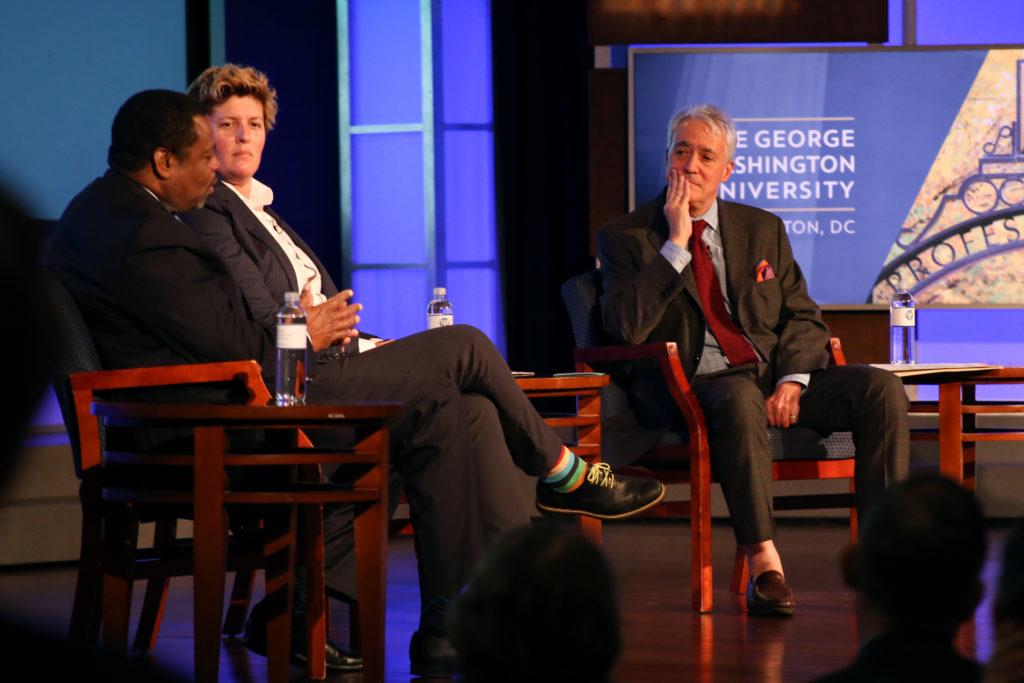A panel of journalists and psychologists spoke to a crowd of more than 200 people Wednesday night to discuss increasing political polarization in the United States.
The American Psychological Association and the National Institute for Civil Discourse partnered for a panel discussion titled “A National Conversation on Civility” in the Jack Morton Auditorium. Scott Simon, the host of National Public Radio’s “Weekend Edition Saturday,” moderated the event, which centered around the idea that civility and mutual respect for those of differing opinions can improve civil discourse.
Arthur Evans, the CEO of the American Psychological Association, said at the start of the panel that an APA study last year showed that nearly 60 percent of Americans felt stress attributed to current social divisiveness.
Evans said this stress contributes to the negativity seen in social discourse today. He said it’s often difficult for people of differing opinions to have meaningful conversations because they have little room to make mistakes — people who say the wrong thing, or say something that is not “politically correct,” are attacked.
“What that does then is it leaves only the people who are at extremes to talk about the issue, and so it reinforces the idea that the only way you can talk about this is in an extreme way,” Evans said.
Sally Kohn, a political commentator and columnist for CNN, said discourse is negatively affected when people justify their poor behavior with another’s supposedly worse behavior.
“When I say somebody always says they did it first and they did it worst, that’s both sides and we’re constantly in this finger-pointing blame,” she said.
Carolyn Lukensmeyer, the executive director of the National Institute for Civil Discourse, said that although systemic change is necessary to improve political polarization, individuals can enact change by exercising civility in their daily lives.
“We as people should be able to engage on the differences fully holding a capacity to be civil and respectful so that we can get to a compromise that will actually create a public policy that takes us forward in the aspirations of the idea of America,” Lukensmeyer said.
Simon, the NPR host and the panel’s moderator, said there are individuals in all political parties who are reluctant to start conversations with those who have different ideologies or are their ideological opposites.
“They’d rather win it than lose it,” Simon said. “Their whole interest is trying to maximize the number of people they can energize on their side. They don’t have time for conversation because history’s moving too quickly.”
Jonathan Haidt, a social psychologist at New York University, said he is pessimistic about the future of democracy because the rise of social media has negatively changed how people interact. Haidt said he is concerned for the future because the digital world doesn’t allow people to escape politics – but he said the United States can move past the division because “it’s always been wrong to bet against America so far and probably it’s wrong to bet against America now.”
“However dire things get, as things get worse and worse, more and more people start working on them and humans are very innovative,” Haidt said. “I’m pessimistic in many ways but that means more and more people are working on it.”





